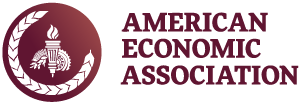Here's a paper on the design of the waitlist for pediatric heart transplants. It's accompanied by an editorial in the journal, and a discussion at Stanford Medical School.
Here's the article
Alyssa Power, MD,a,* Kurt R. Sweat, PHD,b,* Alvin Roth, PHD,b John C. Dykes, MD,a Beth Kaufman, MD,a Michael Ma, MD,c Sharon Chen, MD, MPH,a Seth A. Hollander, MD,a Elizabeth Profita, MD,a David N. Rosenthal, MD,aLynsey Barkoff, NP,a Chiu-Yu Chen, MD, PHD,a Ryan R. Davies, MD,d Christopher S. Almond, MD, MPH, Contemporary Pediatric Heart Transplant Waitlist Mortality Journal of the American College of Cardiology, Volume 84, Issue 7, 13 August 2024, Pages 620-632
ABSTRACT
BACKGROUND In 2016, the United Network for Organ Sharing revised its pediatric heart transplant (HT) allocation policy.
OBJECTIVES This study sought to determine whether the 2016 revisions are associated with reduced waitlist mortality and capture patient-specific risks.
METHODS Children listed for HT from 1999 to 2023 were identified using Organ Procurement and Transplantation Network data and grouped into 3 eras (era 1: 1999-2006; era 2: 2006-2016; era 3: 2016-2023) based on when the United Network for Organ Sharing implemented allocation changes. Fine-Gray competing risks modeling was used to identify factors associated with death or delisting for deterioration. Fixed-effects analysis was used to determine whether allocation changes were associated with mortality.
RESULTS Waitlist mortality declined 8 percentage points (PP) across eras (21%, 17%, and 13%, respectively; P < 0.01). At listing, era 3 children were less sick than era 1 children, with 6 PP less ECMO use (P < 0.01), 11 PP less ventilator use (P < 0.01), and 1 PP less dialysis use (P < 0.01). Ventricular assist device (VAD) use was 13 PP higher, and VAD mortality decreased 9 PP (P < 0.01). Non-White mortality declined 10 PP (P < 0.01). ABO-incompatible listings increased 27 PP, and blood group O infant mortality decreased 13 PP (P < 0.01). In multivariable analyses, the 2016 revisions were not associated with lower waitlist mortality, whereas VAD use (in era 3), ABO-incompatible transplant, improved patient selection, and narrowing racial disparities were. Match-run analyses demonstrated poor correlation between individual waitlist mortality risk and the match-run order.
CONCLUSIONS The 2016 allocation revisions were not independently associated with the decline in pediatric HT waitlist mortality. The 3-tier classification system fails to adequately capture patient-specific risks. A more flexible allocation system that accurately reflects patient-specific risks and considers transplant benefit is urgently needed.
###########
Here's the accompanying editorial in JACC
Getting to Transplant Should Not Be the Goal, by David L.S. Morales MD and Benjamin S. Mantell MD, PhD
And here's the Stanford article:
Heart transplant list doesn’t rank kids by medical need, Stanford Medicine-led study finds. More babies and children survive the wait for a heart transplant than in the past, but improvements are due to better medical care, not changes to wait-list rules, a new study finds. August 5, 2024 - By Erin Digitale
“The current system is not doing a good job of capturing medical urgency, which is one of its explicit goals,” said the study’s co-lead author, economist Kurt Sweat, PhD, who conducted the research as a graduate student in economics at Stanford University. "
#########
Kurt's job market paper was on heart transplants for adult patients.
Friday, April 26, 2024
Update: here's another commentary on the article:
Fewer Kids Now Die While Awaiting Heart Transplant, but There’s Room for Improvement Twenty years of data show mortality has dropped. Still, with one in eight children dying on the wait list, more needs to be done. By Yael L. Maxwell








